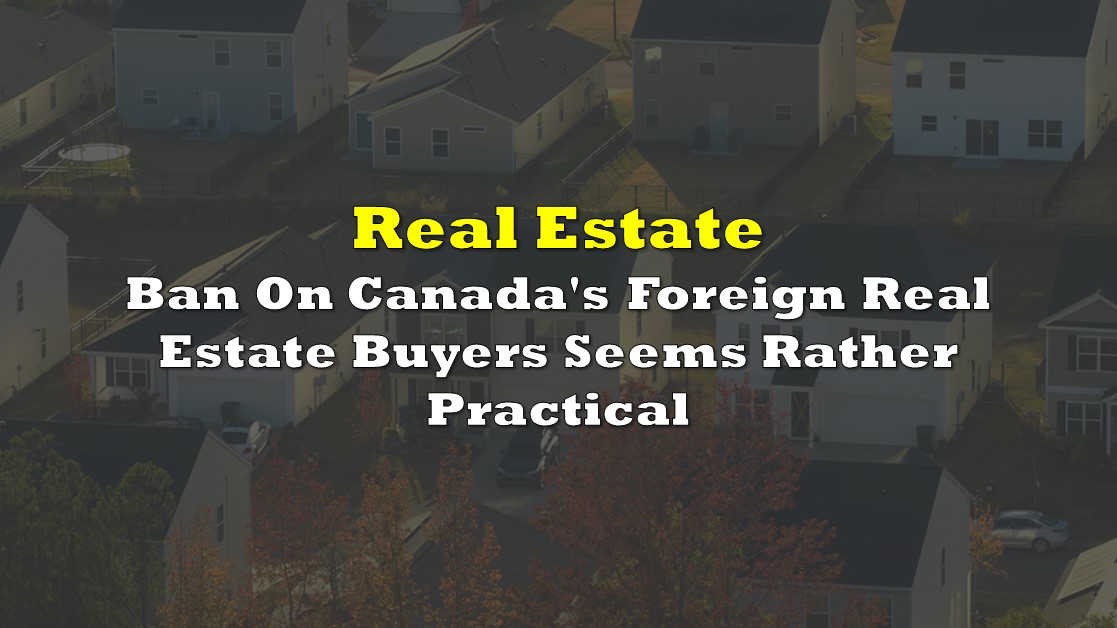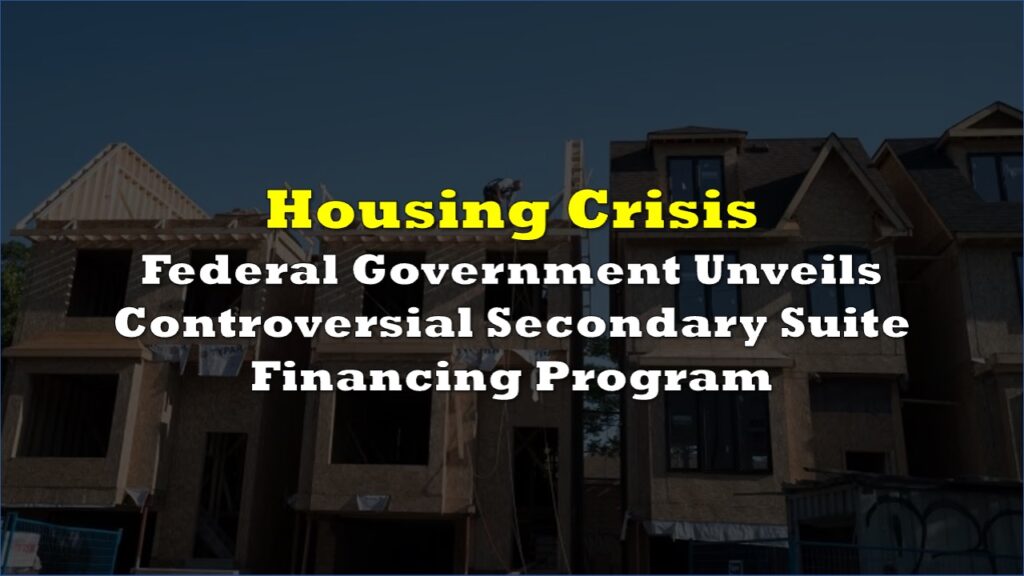Despite the loosely assembled mechanics of the ban on foreign ownership of Canadian housing, it can’t be argued that the recently implemented law had no impact – despite what a recent Reuters article claims. What can be argued is the intention of implementing such measure, whether it was to serve a political agenda or feebly address the growing housing crisis.
But data would point out that the enactment of such a ban had a significant effect in the decline of foreign homeownership.
With next year’s election looming, housing affordability has surged to the forefront of political debates, drawing sharp criticism from Conservative Party leader Pierre Poilievre who squarely places the blame on the Liberal government for the ongoing crisis. In response to mounting pressure, the federal government unveiled a series of measures aimed at bolstering housing supplies. However, experts caution that these actions may not yield immediate relief for struggling homebuyers.
A pivotal move came in the form of an extension to the existing ban on foreign ownership of residential properties. Initially implemented in December 2022 as part of efforts to mitigate the housing crisis, the ban was slated to expire on January 1, 2025. The ban prohibits foreign commercial entities as well as individuals who are not Canadian citizens or permanent residents from purchasing residential properties within the country.
However, in a bid to further curb speculation and stabilize the housing market, the government has pushed the expiry date to January 1, 2027.
Not just political
Some have characterized the surprise announcement to extend the ban as a political maneuver aimed at quelling opposition pressure and showcasing governmental action in the property market. The decision to prolong the ban, made 11 months before its scheduled expiration, coincided with a notable decline in public support for Trudeau, marking its lowest point in years.
According to economists and realtors, Canada’s decision to maintain restrictions on foreign participation in its property market for an additional two years is unlikely to significantly address acute housing shortages, as non-residents were never the primary drivers of property demand.
“The politics is more important than the impact on the economics,” remarked Craig Alexander, president of Alexander Economic Views, an independent economic research organization.
Estimates from economists and realtors suggest a decline in foreign ownership of Canadian houses from 2-3% two years ago to merely a single percentage point, with no official data available beyond 2021, while claiming that this reduction is effectively immaterial. Statistics Canada data indicates that these figures remained relatively stable even preceding the pandemic.
Data from Stat Can shows that from 2016 to 2021, Canada saw a 5.7% rise in the overall number of residences, reaching a total of 16.4 million units. In 2021, there would have been around 328,000 – 492,000 units own by foreigners based on analysts estimates.
A decline in foreign ownership of Canadian dwellings to 1% after the ban was implemented would implya 1-2% drop from 2021. This would mean that anywhere from 164,000 – 328,000 houses are no longer under foreign ownership.

In comparison, Ontario witnessed the largest surge in dwelling numbers across Canada from 2016 to 2021, with an increase of 334,000 houses to 6 million. Following closely behind was Quebec, which saw a rise of 192,000 dwellings during the same timeframe.
The decline in foreign homeownership in just a year comparatively equates to the number of houses built in Ontario or Quebec over five years. This drop is also potentially even higher than the total number of dwellings recorded in 2021 in Newfoundland and Labrador (223,253), and Prince Edward Island (64,570), and early equal to the total dwellings in New Brunswick (337,651).
It is also worth noting that the disparity could be bigger given that there is no available data for 2022, which would more likely be an increase from 2021 housing data before the ban was implemented.
The ban effect
Although foreign buyers have been accused of driving up housing prices in nations such as Australia, the U.K., and New Zealand, none have adopted a stringent approach like Canada by implementing a ban on foreign ownership.
The Finance Ministry attributes worries about housing affordability directly to foreign ownership, emphasizing that Canadian homes should primarily serve Canadians, not foreign investors. The extension of the ban follows calls from economists and realtors to ramp up the construction of new houses as a solution to the housing shortage.
Prime Minister Justin Trudeau’s acknowledgment of the housing crisis, attributed to a lack of construction amidst population growth, led to a temporary slowdown in immigration. Since 2015, Canada has welcomed 2.5 million permanent residents while constructing 1.8 million homes, resulting in a significant surge in benchmark house prices by 30%.
According to economist Robert Hogue, Canada must build 315,000 new residences annually until 2030 to keep pace with population growth. However, the extension of the ban is seen by Hogue as insufficient to address the housing shortage.
Realtors argue that the ban extension won’t benefit first-time homebuyers, as foreigners tend to purchase prime properties, further limiting housing availability. Despite a recent 1.3% decline in house prices due to the Bank of Canada’s interest rate hikes, the Canadian Real Estate Association deems the ban unnecessary, lacking evidence of its impact.
Critics view the ban extension as “xenophobic and politically motivated,” accusing the government of scapegoating foreign buyers rather than implementing effective solutions to the housing crisis.
However, despite the perceived intention, the ban on foreign homeownership did kick out a sizable amount of foreigners from their Canadian houses, regardless of it was effective enough to address the housing gap or Trudeau’s falling rating.
Information for this story was found via Reuters and the sources mentioned. The author has no securities or affiliations related to the organizations discussed. Not a recommendation to buy or sell. Always do additional research and consult a professional before purchasing a security. The author holds no licenses.










One Response
Based on personal experience in the past 10 days, I have come to the conclusion that the ban has had an impact on the rental market – perhaps it might be called collateral damage? It would appear that there has been significant investment by certain ethnic groups in rentable housing in the area where I live (Ontario’s suburban York Region) with those properties for rent now being inaccesible to non-minority applicants. Despite submitting three fully-qualified rental applications for houses in the $3000/month range, with high credit scores, assets letters of reference, and long-term commitments to properties that had no other offers in hand when visited, but which apparently suddenly attracted competitive offers, all three offers produced a “Sorry, we’ve decided to work with other applicants” response. In all three cases, both the owners and the listing agents – based on their names – came from the same ethnic minority.